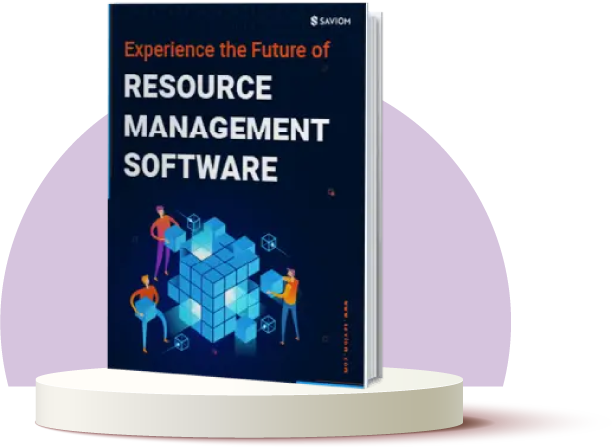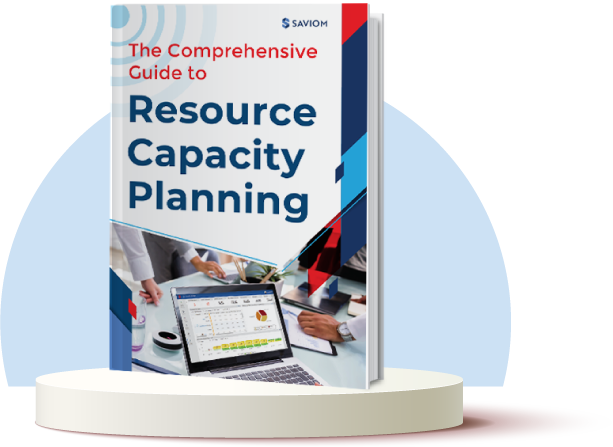“According to the Project Management Institute, the global economy needs 25 million new project professionals by 2030, as an increasing number of jobs require project management-oriented skills.”
The rapid expansion of the project management field stems from factors such as technological advancements, globalization, and the increasing complexity of business operations. Soon, it will become critical to upskill the current workforce with key project management skills to meet the growing demand and drive sustainable business growth.
Beyond the traditional sectors like IT, construction, and professional services, project management skills are now critical in other areas such as healthcare, education, manufacturing, etc. Professionals in these sectors must acquire competencies such as planning, budgeting, scheduling, conflict resolution, decision-making, etc., to navigate diverse challenges, manage business resources effectively, and deliver meaningful results.
This blog explains all the necessary soft and hard skills that every project management professional must have to succeed in their careers.
What are Project Management Skills?
Project management skills are technical and interpersonal abilities that enable individuals to organize, plan, and complete projects successfully within the stipulated time and budget. These skills are critical because they allow professionals to make data-driven decisions, capture emerging opportunities, address bottlenecks, and deliver expected outcomes.
Project management skills are divided into two categories- soft and technical skills. Let’s understand the difference between the two.
Project Management Hard Skills
Project management hard skills are technical capabilities that professionals acquire through education, training, or experience. These skills are easily measurable through assessment and demonstration. Some common hard skills are project planning, cost management, risk analysis, technical proficiency, and knowledge of project methodologies.
Project Management Soft Skills
Project management soft skills are non-technical and interpersonal capabilities that improve with experience and practice. Unlike technical competencies, soft skills are primarily concerned with managing relationships and interactions within a project team. Some common soft skills are leadership, conflict resolution, communication, and problem-solving.
Technical Skills for Project Managers
Here is a rundown of the essential hard skills that every project management professional should have:
Project Planning
Project planning is a fundamental skill for any project manager. It is the process of defining goals, setting milestones, establishing timelines, and coordinating stakeholder input. Good project planning skills allow managers to create a roadmap, anticipate potential challenges, and take necessary steps to ensure successful project completion.
Scope Management
Scope management is another critical skill for project managers. It involves defining and controlling changes as well as managing stakeholder expectations to avoid scope creep. By managing scope meticulously, project managers can ensure all deliverables are achieved without deviating from the original plan.
Read More: What is a Project Scope Document, and How to Create an Effective One?
Project Scheduling
Project scheduling is the process of allocating resources to specific tasks and ensuring they adhere to the deadline. A project manager must be able to break down the work into manageable tasks and sub-tasks, assign responsibilities, and sequence them logically. Moreover, proper scheduling ensures that resources are utilized effectively and the project is delivered successfully.
Task Management
Task management is essential for organizing and monitoring the completion of individual project activities throughout the lifecycle. This includes breaking down complex projects into manageable tasks, assigning responsibilities, and meeting deadlines. Project managers must be able to track task progress, identify potential risks, and make adjustments as needed.
Resource Management
Resource management skills involve efficient allocation and scheduling of resources, including human labor, equipment, and tools throughout the project. Managers should be able to plan resource needs, handle ramp-down activities to prevent bench time, and ensure optimum resource utilization to avoid under or overloading team members.
Read More: What is Resource Management? A Comprehensive Guide
Cost Management
Cost management involves meticulous planning, monitoring, and controlling expenditures to ensure projects stay within the pre-defined budget. This skill is critical for project managers as it helps them maintain the project’s financial feasibility and ensure client satisfaction. They need to create accurate budget estimates, track expenses regularly, and analyze actual vs. forecasted costs to improve future project planning.
Time Management
In project-centric businesses, time management is crucial. Every project has specific tasks, and all these tasks have different time frames. Therefore, a manager must know how to consistently manage a complex timeline and help the team members stay on that schedule.
Change Management
Change management is the ability to effectively manage changes in project scope, objectives, and deliverables. Project managers need to assess changes, communicate them to stakeholders, and integrate them into the project without disrupting the progress. Good change management practices help managers address resistance to change, mitigate potential risks, and ensure that alterations align with overall project goals.
Read More: Why is Change Management Important in the Timely Delivery of Projects?
Risk Management
Risk management skills involve identifying, assessing, and controlling potential risks that could impact a project’s success. By creating a risk mitigation plan, project managers can address threats with counter solutions, ensuring the project stays on track and is delivered on time.
Agile Project Management
As a project manager, the ability to lead agile teams requires adapting to changing requirements, delivering in short cycles (sprints), and constantly improving processes. Agile project management helps maintain customer satisfaction by delivering continuous value and allows the project team to adjust quickly to feedback. This skill involves fostering a dynamic environment where responsiveness and innovation are key.
Read More: What is Agile Project Management & How to Effectively Manage Resources?
Project Portfolio Management
Project portfolio management involves overseeing a collection of projects to ensure they align with organizational strategy and goals. A project manager must be able to prioritize projects based on their strategic value, allocate resources efficiently, and assess the performance of multiple projects. Effective PPM ensures that projects contribute to organizational goals and are executed effectively.
Project Documentation & Reporting
As a project manager, this skill involves creating and managing various documents, such as project plans, progress reports, and status updates, to track performance and decisions. Effective documentation ensures that all project details are well-recorded and accessible, helping stakeholders stay informed and facilitating knowledge transfer throughout the project lifecycle.
Read More: 5 Essential Project Reports That Every Project Manager Must Look Into
Project Management Software Proficiency
Project management software proficiency is essential for streamlining tasks, communication, and collaboration. Skilled managers must know how to use tools effectively to organize projects, automate processes, and track progress. Moreover, familiarity with the right software helps with team productivity and successful project delivery.
Now that we have covered essential hard skills, let’s explore the key soft skills in project management.
Soft Skills for Project Managers
Enlisted below are the soft skills project managers must possess to excel in their jobs.
Stakeholder Management
Stakeholder management skills involve identifying key stakeholders, understanding their expectations, and aligning them with project goals. With strong skills, managers can address conflicting interests, keep stakeholders engaged, and develop strategies to ensure their active involvement in project decisions.
Leadership Skills
As leadership expert John Maxwell rightfully said, “The pessimist complains about the wind. The optimist expects it to change. The leader adjusts the sails.”
This is one of the essential skills that any manager must have. A leader combines project management skills and emotional intelligence to guide the team toward successful delivery. By mentoring, leading by example, and fostering a positive work environment, leaders engage team members, boosting their performance and ensuring project success.
Read More: The Fundamentals of Leadership in Project Management
Communication Skills
According to a survey report, “28% of employees reported poor communication as the cause behind project failure.”
Effective communication skills are crucial for managers to align team members and stakeholders with overarching project goals. It prevents misunderstandings, conflicts, and missed deadlines. Therefore, proper communication protocols can help managers foster rapport, clarify expectations, and keep everyone on the same page for successful project outcomes.
Negotiation Skills
An effective manager is a diplomatic negotiator skilled in managing resources, engaging suppliers, setting budgets, and resolving team conflicts. Mastery in persuasive techniques helps create win-win situations with stakeholders. Managers must adapt negotiation styles based on the scenario and navigate tactics effectively.
Read More: Ten Project Management Principles Every Resource Manager Must Know
Critical Thinking
Effective planning is key to successful projects, and a manager must be able to think strategically. With critical thinking skills, a manager can create a solid project plan, prioritize tasks, align with organizational goals, and schedule resources efficiently to increase revenue.
Decision-Making Skills
Decision-making skills enable project managers to evaluate options, assess risks, and make informed choices to keep projects on track. By gathering data, analyzing alternatives, and focusing on goals, they ensure quick and effective decisions that drive progress and prevent project delays.
Read More: How Can You Make Data-Driven Decisions with Resource Management Software?
Team-Building Skills
Team-building skills help project managers foster collaboration, enhance communication, and maintain team morale. By promoting inclusivity, resolving conflicts, and encouraging idea-sharing, managers create a supportive environment. Strong teamwork boosts productivity, sparks innovation, and ensures smooth project execution.
Adaptability
Adaptability is crucial for project managers to navigate changes in plans, deadlines, or priorities. It involves quickly adjusting strategies while maintaining progress. By fostering a flexible mindset, embracing new tools or techniques, and guiding teams through transitions, adaptability ensures project success despite unforeseen challenges.
Problem-Solving
Problem-solving skills enable project managers to tackle unexpected challenges and develop effective solutions to keep projects on track. By using data-driven strategies, exploring new perspectives, and staying resilient under pressure, they ensure progress even when plans go awry, fostering project success through proactive resolution.
Delegation
Delegation skills allow project managers to assign tasks effectively, ensuring work is distributed appropriately among team members. Successful delegation involves setting clear expectations, providing actionable instructions, and offering guidance when needed. This approach keeps projects on track and empowers effective team performance.
Read More: 7 Powerful Insights on Sustaining High-Performance Work Teams
Creative Mindset
Creativity allows project managers to approach challenges uniquely and devise effective solutions. It helps in exploring new perspectives and enhancing problem-solving. While applications of AI and tools assist in execution, creativity remains an irreplaceable human skill, driving progress and delivering fresh ideas for project success.
Organizational Skills
Organizational skills enable project managers to manage tasks, time, and resources efficiently. Creating order amidst complexity ensures seamless workflows and clear task dependencies. Moreover, strategic organization prevents chaos, boosts team morale, and enhances productivity, making it a vital attribute for project management.
Technical Prowess
Technical prowess combines subject matter expertise with the ability to identify and use the right tools for project needs. Proficiency in project scheduling, planning, and resource management ensures smooth workflows. Additionally, embracing evolving technology allows effective communication and successful project completion.
Read More: Applications of AI in Project Management
We have covered the must-have project management soft skills to succeed in this role. Up next, there are tips on how to build and improve these managerial skills.
How to Develop These Project Management Skills?
Here is a detailed description of how you can develop and nurture your project management skills:
Gain Experience in the Field
Like every other job, gaining project management experience improves your skills. You can start by paying attention to how project managers handle tasks, asking them questions, and applying those insights by managing smaller projects yourself. Moreover, use opportunities to lead tasks, organize events, or streamline processes to build skills.
In addition to hands-on experience, explore theoretical knowledge by studying blogs, publications, or past projects. This balance of real-world experience and learning from others helps you grow as a project manager and prepares you to handle future challenges with confidence.
Attain Certifications and Degrees
Another way to refine your project management skills is by earning certifications or degrees. Options include PMP certification provided by PMI, CAPM for beginners, or PRINCE2 Foundational for methodology-specific expertise. These certifications validate your skills and knowledge, enhancing your ability to manage projects effectively.
In addition to certifications, acquiring a Bachelor’s or Master’s degree in project management can further strengthen your expertise. Various institutes worldwide offer these programs, equipping you with technical and strategic skills essential for career growth in project management.
Read More: A Cheatsheet to Achieve a Project Manager’s Career Goals & Objectives
Actively Participate in Project Management Events
Attending and actively participating in project management events helps hone your skills. Programs by PMI and other organizations provide opportunities to connect with senior managers and gain mentorship. You will also learn about emerging tools, best practices, and industry trends.
Local chapters, webinars, and podcasts offer additional platforms for growth. Therefore, you may register and join these online events. It allows you to engage with experts, ask questions, and stay updated on the latest developments in project management, ensuring you remain competitive in this evolving field.
Evaluate Your Progress Regularly
After completing a few small projects, take time to evaluate your progress. Moreover, reflect on your strengths, areas needing improvement, and lessons learned from both challenges and successes. This helps you refine your approach and build confidence for future projects.
However, documenting each step is crucial for a thorough evaluation. Following that, review your processes to identify gaps and opportunities to develop decision-making and critical thinking skills. You may even take feedback from team members or senior managers to improve your competencies.
Learn to Use Project Management Tools
Gaining proficiency in project management software is crucial for project efficiency. These tools help streamline project planning, progress tracking, and resource management. Familiarity with them allows you to efficiently handle tasks, teams, and risks, ensuring smoother execution and better overall outcomes.
Many project management platforms offer free trials, providing opportunities to practice and learn. By becoming proficient in these tools, you can optimize project workflows and improve team collaboration, ultimately leading to successful project completion.
Conclusion
A project manager carries out multiple responsibilities at once, and sometimes, it may get a little overwhelming. However, with the right approach and an enhanced set of skills, one can succeed in the project management field. The key is to remain updated with the latest trends and develop the competencies mentioned above.
What project management skills have you refined?
The Glossary
Read More: Glossary of Resource Workforce Planning, Scheduling and Management












